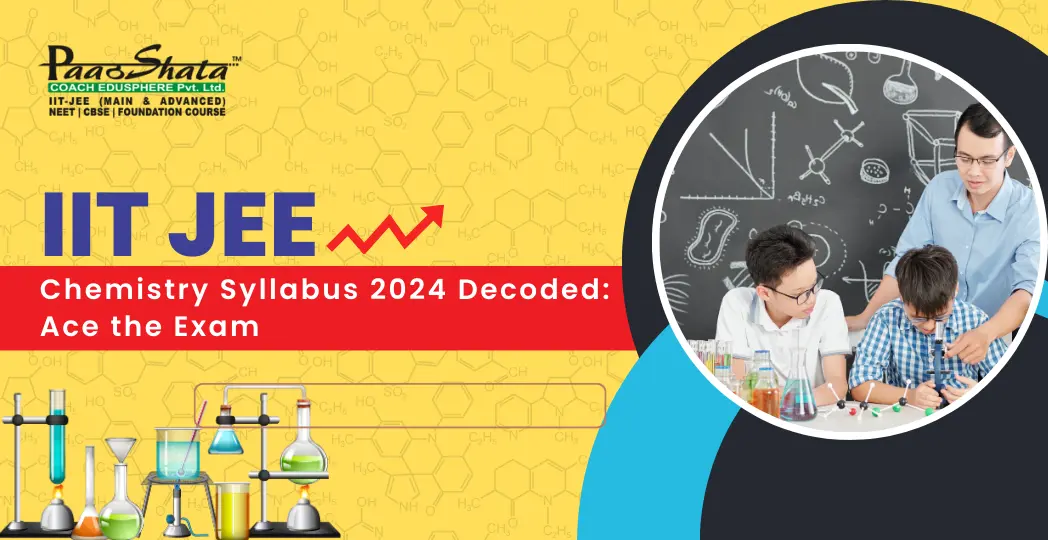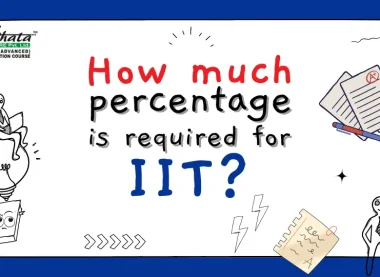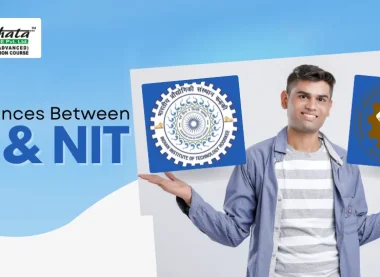The Joint Entrance Examination (JEE) is a highly competitive exam that serves as the gateway for admission into prestigious engineering institutes like IITs, NITs, and IIITs across India. To crack this exam and secure a spot in these top-rated institutes, you need to have a well-structured preparation plan and a deep understanding of the revised Chemistry syllabus for the JEE Main 2024 exam. This article provides a detailed guide to help you master the Chemistry syllabus and achieve success in the upcoming exam.
Section 1: Understanding the JEE Main Chemistry Syllabus
The JEE Main Chemistry syllabus for 2024 consists of Inorganic, Organic, and Physical Chemistry. Understanding the subject areas and specific topics covered in each branch of Chemistry is crucial for effective exam preparation.
1.1 Understanding Inorganic Chemistry:
Inorganic Chemistry focuses on the study of elements, their compounds, and their properties. It includes topics such as atomic structure, chemical bonding, coordination compounds, redox reactions, electrochemistry, chemical equilibrium, thermodynamics, chemical kinetics, periodic table, states of matter, metallurgy, and nuclear chemistry. Developing a strong conceptual understanding of these topics is vital to excel in this section.
1.2 Understanding Organic Chemistry:
Organic Chemistry deals with the structure, properties, composition, reactions, and synthesis of organic compounds. Topics like alkanes, alkenes, alkynes, aromatic compounds, halogen derivatives, alcohols, phenols, ethers, aldehydes, ketones, carboxylic acids and derivatives, amines, polymers, biomolecules, stereochemistry, organic compounds containing nitrogen, and haloalkanes are covered in this section. Organic Chemistry requires extensive practice in understanding the reaction mechanisms and different classes of compounds.
1.3 Understanding Physical Chemistry:
Physical Chemistry explores the principles and properties of matter and the changes it undergoes during chemical reactions. Topics covered include the mole concept, kinetic theory, thermodynamics, chemical equilibrium, ionic equilibria, chemical kinetics, electrochemistry, surface chemistry, nuclear chemistry, thermochemistry, and chemical bonding. Having a solid grasp of the mathematical concepts and theories in this branch is crucial to excel in Physical Chemistry.
Section 2: Detailed Coverage of Chemistry Topics
A systematic approach to studying the vast syllabus of Chemistry is essential to ace the exam. Here is a detailed coverage of the important topics under Physical, Inorganic, and Organic Chemistry:
2.1 Physical Chemistry Topics:
Physical Chemistry topics include concepts such as reaction kinetics, thermodynamics, chemical equilibrium, electrochemistry, surface chemistry, and quantum mechanics. Understanding the principles, theories, equations, and calculations involved in these topics will help you excel in this section.
2.2 Inorganic Chemistry Topics:
Inorganic Chemistry covers topics like atomic structure, periodic table trends, coordination chemistry, metallurgy, qualitative analysis, and chemical bonding. Learning the properties, behavior, and reactions of elements and compounds is crucial in understanding this branch of Chemistry.
2.3 Organic Chemistry Topics:
Organic Chemistry encompasses topics such as nomenclature, structure, and properties of organic compounds, reaction mechanisms, functional group transformations, stereochemistry, and biomolecules. This branch requires a strong understanding of the structural aspects and reaction mechanisms involved.
Section 3: Weightage and Key Focus Areas
Understanding the weightage of different topics and focusing on high-weightage areas is crucial in maximizing your exam scores. Key focus areas include:

3.1 Weightage of Topics in JEE Main 2024 Chemistry:
Analyzing the percentage weightage of Physical, Inorganic, and Organic Chemistry topics will help you allocate your study efforts and time effectively.
3.2 Topics with High Weightage in JEE Main Chemistry:
Identifying essential topics with significant weightage, such as Thermodynamics, Chemical Equilibrium, Organic Compounds with Functional Groups, Coordination Compounds, and Atomic Structure, will enable you to prioritize your preparation and strengthen your understanding in these areas.
Section 4: Best Books for JEE Chemistry Preparation

Choosing the right study materials and books is essential for effective preparation. Some of the highly recommended books for JEE Chemistry preparation include:
- “Physical Chemistry” by P. Bahadur
- “Organic Chemistry” by Morrison and Boyd
- “Inorganic Chemistry” by J.D. Lee
- “Concise Inorganic Chemistry” by J.D. Lee
- “Modern Approach to Chemical Calculations” by R.C. Mukherjee
Section 5: Tips to Revise JEE Chemistry Syllabus in 3 Months
Revising the entire Chemistry syllabus in a limited time frame requires a strategic approach. Here are some tips to help you revise the JEE Chemistry syllabus effectively in 3 months:
5.1 Create a Revised Study Plan:
Break down the syllabus into smaller topics and allocate specific time slots for revision. Prioritize topics based on their weightage and your strengths/weaknesses.
5.2 Focus on Conceptual Understanding:
Instead of trying to memorize everything, focus on understanding the fundamental concepts and principles behind each topic. This will help you tackle any type of question in the exam.
5.3 Practice with Mock Tests and Previous Year Papers:
Regularly attempt mock tests and solve previous year question papers to familiarize yourself with the exam pattern and improve your speed and accuracy.
5.4 Make Short Notes and Flashcards:
Summarize important concepts, equations, and reactions in the form of short notes and flashcards. These will serve as quick revision tools during the last few weeks before the exam.
5.5 Seek Clarifications and Guidance:
If you encounter any doubts or difficulties during your revision, seek clarifications from your teachers or join study groups where you can discuss and solve problems with fellow aspirants.
Conclusion:
A well-prepared student with a clear understanding of the revised Chemistry syllabus can succeed in the JEE Main 2024 exam. This comprehensive guide provides valuable insights into the essential subject areas, topics, weightage changes, recommended books, and tips for revising the syllabus in a limited time. Utilize the information and strategies to enhance your knowledge, improve your preparation, and excel in the IIT JEE exam. With diligent effort and a strategic approach, you can master the Chemistry syllabus and achieve your goal of securing admission to premier engineering institutes.






